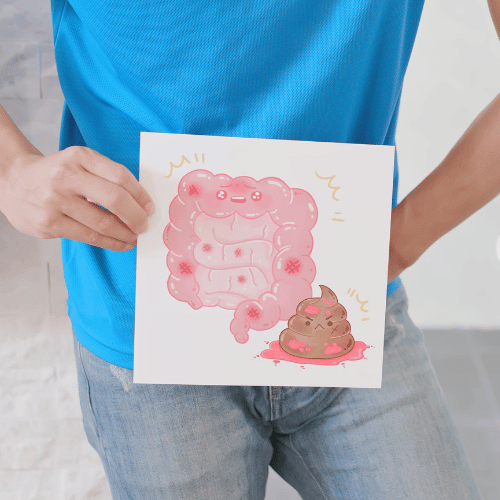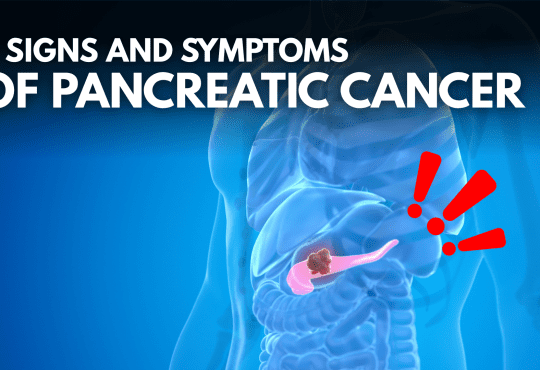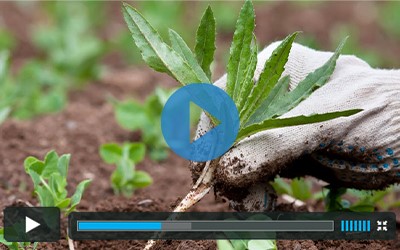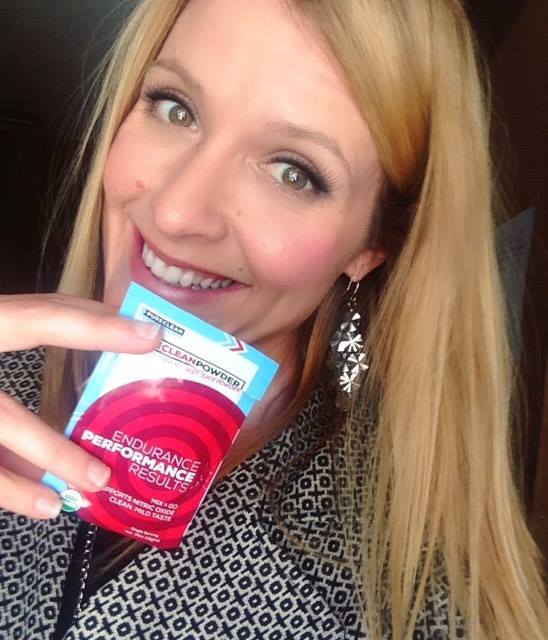
10 Surprising Facts About Colorectal Cancer
Let’s talk about something really important but often overlooked: our gut health.
It’s not just about digestion, you know. A healthy gut is key to our overall well-being, playing a big role in our immune system, how we absorb nutrients, and even affecting our mood.
Think about it – the food we eat and how we live our lives have a huge impact on our gut.
And this is super relevant when we talk about colorectal cancer, a condition that’s more common than many of us realize.
We’re not just throwing numbers at you; these are valuable insights.
They’ll help you understand how to take better care of your gut, recognize early warning signs, and see why catching this early can make all the difference.
Ready to get started? Let’s jump right into this journey of discovery.
Fact Number 10: Research is constantly evolving, and treatments are advancing.
Let’s take a moment to talk about something really cutting-edge: the progress in colorectal cancer research.
It’s a big deal because, let’s face it, this type of cancer affects a lot of people.
Now, the story behind this progress is pretty fascinating.
In the past few years, how we treat colorectal cancer has changed a lot, mainly thanks to some really cool developments in immunotherapy and targeted therapies.
Think of immunotherapy as giving a mega boost to your body’s immune system, helping it recognize and fight cancer cells.
It’s like turning your body into a superhero, fighting off the bad guys from the inside.
Then, there are these targeted therapies.
Imagine having smart missiles that only hit the bad cells – that’s what these therapies do.
They zoom in on specific things in cancer cells, like certain proteins or mutations, and attack them without harming the healthy cells.
It’s super precise and a big leap forward in how we treat cancer.
The best part? Research shows that these advanced treatments are really shaking things up in the world of colorectal cancer care.
They’re moving us away from the old ‘one-size-fits-all’ approach to something way more personalized.
Now, treatments are tailored to fit each person’s unique cancer, and that’s a game-changer for patient outcomes.
And let’s not forget about clinical trials. These are where all the new, exciting treatments get tested out.
They’re like the research labs where the future of beating colorectal cancer is being shaped.
So, what does all this mean for people diagnosed with colorectal cancer? Well, things are looking up!
With each new discovery, we’re getting closer to better managing this disease and, who knows, maybe even beating it for good one day.
Fact Number 9: Symptoms can be silent.
Alright, let’s talk about something sneaky about colorectal cancer—how silently it progresses. It’s a bit of a shocker, but super important to know.
Often, people with this cancer don’t even realize something’s wrong until it’s pretty far along.
Imagine a thief sneaking around undetected—that’s kind of how this cancer works.
It’s tricky to catch early because it doesn’t really wave any red flags with symptoms at first.
Now, the fact that you don’t see symptoms early on isn’t just a ‘huh, that’s odd’ thing. It’s a big deal for figuring out and treating the cancer.
When symptoms like changes in your bathroom habits, blood in your stool, stomach aches, or unexplained weight loss do show up, the cancer might already be at a tough stage to treat.
This is why regular check-ups, like colonoscopies, are so important.
They’re not waiting around for symptoms to show up; they’re like detectives looking for clues early on.
These screenings are especially key for folks over 50, or if you’ve got a family history of the disease or certain genetic factors.
Catching things early with these screenings can really tip the odds in your favor.
Studies show that these regular screenings are lifesavers.
They can spot those small, precancerous polyps and get rid of them before they turn into full-blown cancer.
This can mean the difference between catching the cancer when it’s still in the ‘we can handle this’ stage versus when it’s a lot more complicated.
Fact Number 8: The survival rate for colorectal cancer is quite promising if it’s caught early.
Here’s a bit of good news about colorectal cancer that might surprise you: the survival rate is actually pretty high, especially if it’s caught early.
This is a really hopeful sign in the world of cancer treatment.
Let’s talk numbers for a second.
If colorectal cancer is found early, while it’s still hanging out where it started and hasn’t spread, the five-year survival rate is about 90%.
That’s a big deal because it shows just how important catching it early is.
When it’s just in one spot, doctors have a lot more options for treatment, and these treatments usually work a lot better.
This high survival rate really proves how well current treatments can work when the cancer is caught at that early stage.
We’re talking about surgeries to remove the affected part of the colon or rectum, and sometimes chemotherapy or radiation, if needed.
These treatments can be super effective before the cancer has a chance to spread.
But here’s the thing – this high survival rate also tells us something important about screenings.
Regular screenings, like colonoscopies, are amazing at catching cancer super early, way before any symptoms show up.
These screenings can literally save lives, catching cancer at a stage when it’s easiest to treat.
Unfortunately, though, this isn’t the case if the cancer is found later.
If it’s already spread to other parts of the body, the survival rates drop. That’s why it’s so crucial to catch it early.
Fact Number 7: Lifestyle changes can significantly impact your risk.
Did you know that you’ve got some real power when it comes to lowering your risk of colorectal cancer? Yep, it’s true!
Making certain lifestyle changes can have a big impact, and that’s pretty empowering.
First up, let’s talk exercise.
Getting active isn’t just about looking good or staying fit; it’s about keeping your body’s systems in check, including those that might affect your cancer risk.
Regular exercise—and we’re talking the kind that gets your heart pumping—can really cut down your chances of getting colorectal cancer.
It helps you keep a healthy weight, cuts down inflammation, and keeps your gut happy, all of which are super important.
Speaking of weight, keeping it in a healthy range is key.
Being overweight, especially when that weight is around your belly, can increase your risk of not just colorectal cancer but several types.
Those extra pounds can make hormones and growth factors that might encourage tumors to grow.
Eating right and staying active are great ways to manage your weight.
Now, let’s chat about alcohol.
A little might be okay, but drinking a lot increases your risk for colorectal cancer.
Alcohol can make polyps grow in your colon and rectum, and those polyps can turn into cancer. So, keeping an eye on your drinking can really help.
And if you smoke, here’s another reason to quit: smoking increases your risk of lots of cancers, including colorectal cancer.
The stuff in tobacco smoke can make those pesky polyps that might turn cancerous.
All these lifestyle tips aren’t just random advice; they’re backed by solid science.
Fact Number 6: Not all polyps turn into cancer.
Let’s dive into a really important aspect of colorectal cancer: its connection with polyps.
Now, polyps are these little growths that can pop up in your colon or rectum.
They’re usually no big deal, but here’s the catch – most colorectal cancers actually start from these small growths.
That’s why understanding this link is super important for stopping cancer in its tracks.
Polyps are pretty common, especially as we get older.
The good news is that most of them are benign – that means they’re not cancerous and probably won’t turn into cancer.
But there’s a type of polyp, called adenomatous polyps or adenomas, that can become cancerous over time.
Catching and removing these polyps early is key in preventing them from turning into cancer.
The journey from a harmless polyp to cancer isn’t usually a quick one; it can take years.
This slow process actually gives us a golden opportunity to stop cancer before it starts, and that’s where regular screenings like colonoscopies come in.
During a colonoscopy, doctors can spot and remove these polyps long before they have any chance to become cancerous. It’s a bit like having a superpower to prevent cancer.
Research backs this up big time. Studies have shown that getting rid of these adenomatous polyps can really lower your chances of developing colorectal cancer.
It’s proof that catching things early and getting those screenings isn’t just about finding cancer; it’s about stopping it before it even begins.
But here’s the thing: just because polyps can turn into cancer doesn’t mean you should panic. It’s all about being aware, especially if you’re over 50 or have a family history of colorectal cancer.
Talk to your doctor about how often you should get screened. It’s a simple step that can make a huge difference.
Fact Number 5: Early detection saves lives.
Let’s talk about something that could literally save your life: catching colorectal cancer early.
This isn’t just doctor’s advice; it’s a fact that can make a world of difference.
When we find colorectal cancer early, the chances of nailing the treatment and beating it are way, way higher.
That’s why those regular screening tests are super important – they’re not just suggestions; they’re life-savers.
In its early stages, colorectal cancer is kind of a ninja; it doesn’t really make itself known with symptoms.
That’s why catching it without screening is tough.
But if you do catch it early, with treatments like surgery, radiation, or chemo, you’ve got a really good shot at kicking it to the curb.
Early on, the cancer is usually just hanging out in the colon or rectum, without having spread, which makes it easier to tackle.
This is really clear when you look at survival rates.
Studies show that folks diagnosed with colorectal cancer that hasn’t spread have a much better survival rate than those who find out later.
It’s a huge difference – early detection can literally be the difference between life and death.
So, how do we catch it early? screenings, like colonoscopies and stool-based tests.
These are your best friends in spotting cancer early.
They can even find and get rid of polyps before they turn into cancer.
The general rule of thumb is to start getting screened at 45, but if you’ve got a family history or other risk factors, you might want to start earlier.
The impact of these screenings is massive.
They’re not just about finding cancer; they’re about stopping it before it gets serious.
By getting regular screenings, we can drastically cut down the number of people who die from colorectal cancer.
Fact Number 4: Rates of colorectal cancer are increasing among younger adults.
Here’s something that might surprise you about colorectal cancer: it’s not just a concern for the older crowd anymore.
We’re seeing more and more young adults—people in their 20s, 30s, and 40s—getting diagnosed.
This is a big shift from what we used to think, and it’s making everyone sit up and pay more attention.
For a long time, colorectal cancer was mostly something people over 50 had to worry about.
But now, studies are showing that younger folks are getting it too, and that’s changing the game.
It means we need to rethink when to start screening and how we talk about this disease.
So, what’s behind this rise in younger adults?
It’s not totally clear, but it could have to do with how we live our lives, what we eat, and maybe even environmental stuff.
A lot of younger people don’t think they can get colorectal cancer, which can lead to a late diagnosis because they’re not getting screened or paying enough attention to the warning signs.
And speaking of signs, let’s talk symptoms.
We’re talking about changes in how often you go to the bathroom, blood in your stool, stomach aches, losing weight without trying, and feeling really tired all the time.
Sure, these can be caused by lots of things, but if they don’t go away, it’s time to talk to a doctor, even if you think you’re too young for this kind of problem.
Because of this trend, some health experts are saying we should start screening at 45, or even earlier if you’ve got a family history of colorectal cancer or other risk factors.
Fact Number 3: Age is a major risk factor.
Let’s talk about a big risk factor for colorectal cancer – age. It’s a fact that this type of cancer is more common in folks over 50.
While anyone can get it, the reality is that the older you get, the higher your risk.
This is a super important point because it highlights why regular screenings are so crucial as we age.
Here’s a number for you: over 90% of colorectal cancer cases are diagnosed in people who are over 50.
Why? Well, it’s partly because of the way our lifestyle choices stack up over the years, and also because our body’s cells change as we get older.
The colon and rectum can go through changes, like developing polyps, which might turn into cancer if they’re not caught and taken care of.
This is exactly why the usual advice is to start getting screened for colorectal cancer at 50 if you’re at average risk.
Screenings, like colonoscopies, are superheroes in catching cancer early—when it’s most treatable.
They’re also great at spotting and removing those polyps before they become a bigger problem.
But, and this is important, with more younger people getting colorectal cancer these days, we can’t just focus on age alone.
If you’ve got a family history of the disease, certain genetic conditions, or other risk factors, you might need to start screening earlier. It’s not a one-size-fits-all situation.
Knowing that age plays a big role in colorectal cancer risk is key to making smart decisions about your health.
If you’re older and haven’t been keeping up with screenings, now’s the time to talk to your doctor about the best plan for you.
Fact Number 2: Diet plays a significant role in the risk of developing colorectal cancer.
Let’s dive into how what you eat can affect your chances of getting colorectal cancer.
It’s a pretty big deal and a bit complex, but stick with me.
Basically, chowing down on a lot of red and processed meats could up your risk, while loading up on fruits, veggies, and whole grains might help keep it down.
There’s a bunch of research out there linking red meats (like beef and pork) and processed meats (think sausages and deli slices) to a higher risk of colorectal cancer.
When you eat these kinds of meats, your body creates some chemicals during digestion that aren’t so great for your colon.
They can damage the lining and potentially lead to cancer.
But here’s the brighter side: diets packed with fruits, vegetables, and whole grains are like superheroes for your colon.
These foods are full of fiber, vitamins, and phytochemicals, all of which help protect your colon.
Fiber is especially awesome because it helps move things along your digestive system, reducing the time any bad stuff is in contact with your colon.
Plus, when fiber breaks down in the colon, it makes these short-chain fatty acids that are really good for you.
And let’s not forget about antioxidants.
These are the bodyguards for your cells, protecting them from damage by free radicals, which are like the troublemakers that can lead to cancer.
You’ll find lots of antioxidants in plant-based foods, like vitamins C and E, and other compounds like polyphenols.
Fact Number 1: Colorectal cancer is the third most common cancer diagnosed in both men and women in the United States.
Did you know that colorectal cancer is a big deal in the US? It’s actually the third most common cancer for both men and women.
That’s a stat that really makes you think about how many people are affected by this disease.
And yet, it doesn’t always get the spotlight like some other cancers do, which means a lot of us might not know as much about it as we should.
This high rate of colorectal cancer tells us it’s a major health issue that needs our attention and resources.
Chances are, you might even know someone who’s been affected by it.
That’s why spreading the word and educating ourselves and others is so important.
Awareness is a huge weapon in the fight against colorectal cancer.
Knowing stuff like what risk factors to look out for – like your age, what you eat, how you live, and your family history – can really push us to take action to prevent it or catch it early.
And early detection is key.
Regular screenings, like getting a colonoscopy, can catch cancer when it’s easier to treat or even find and remove polyps before they turn into cancer.
Talking openly about colorectal cancer can also help break down any stigma or myths about it.
The more we chat about symptoms, risks, and getting screened, the more we encourage others to get checked out in time.
And with colorectal cancer being so common, it’s a big area of focus for researchers who are working hard to find better treatments and maybe even a cure someday.
This just goes to show how crucial it is to keep pushing for more research and advances in how we tackle this disease.
And that’s a wrap on our deep dive into colorectal cancer.
It’s a lot to take in, but understanding these facts can really make a difference in how we approach our health and the health of those we care about.
Remember, knowledge is power, especially when it comes to prevention and early detection of this common but treatable disease.
We’ve got loads more health insights and tips coming your way, and we don’t want you to miss out.
Stay informed, stay proactive about your health, and here’s to a healthier future for all of us. Take care!









